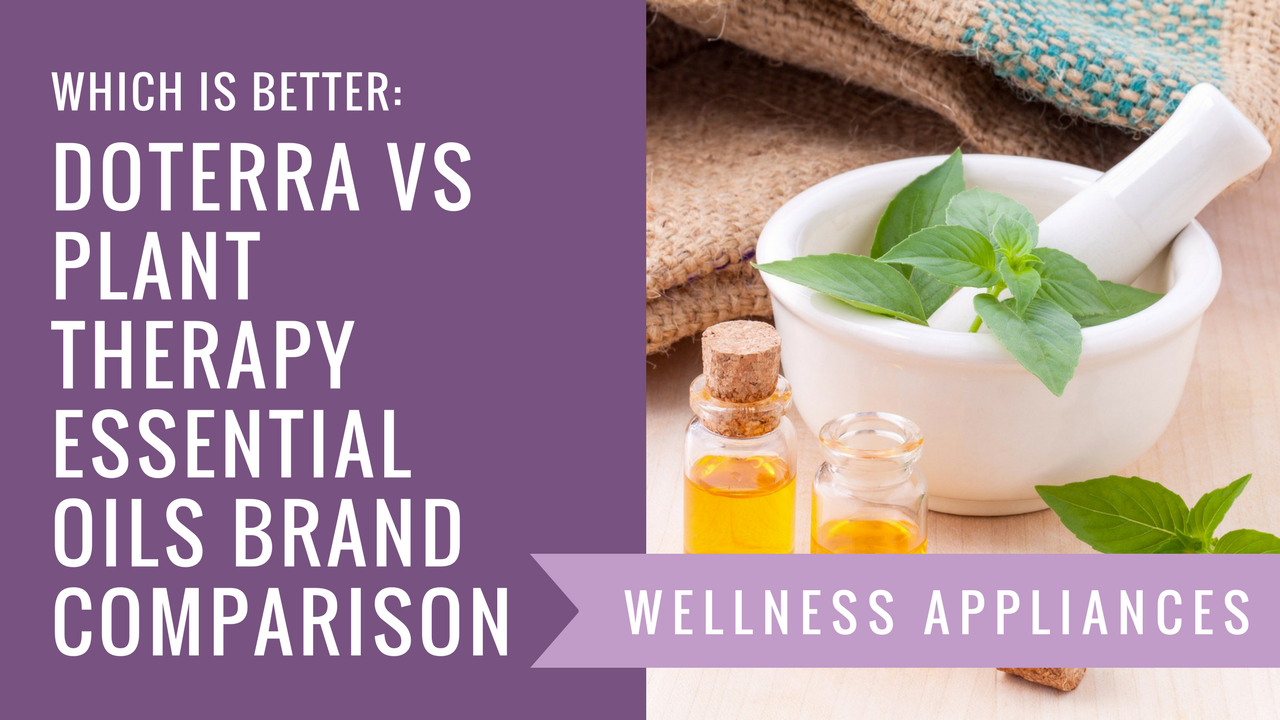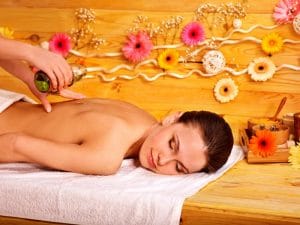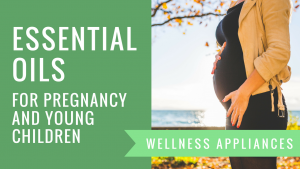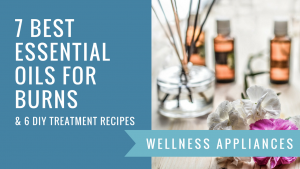Contents
When it comes to essential oils, quality is key.
You might be tempted to purchase anything that is marketed “pure, natural essential oils”, or just anything that has the label “essential oil” on it. To have any of the desired effects you want to gain from using essential oils, aromatherapists indicate that your priority should be finding truly natural essential oils. Not synthetic, and most definitely not those that have additives or other impurities.
It is even better to use only organic essential oils whenever possible.
Here are some general rules to follow in choosing essential oils:
- The bottle should look dark and be made of glass (read more on essential oil storage), preferably with the Latin scientific name on it, and with method of distillation, place of origin, some sign of certificates.
- Purchase essential oils within the range of reasonable prices. for example, $2-$3 for a 10 ml bottle of essential oil is a questionable price. Essential oils are the kind of thing where an increase in price generally corresponds with a real increase in quality.
- As of yet, there is no outside body that governs and controls the production of essential oils. All you can do is check their website for any information on the sourcing of plants, production methods and so on. So as a general rule do your research on getting a good brand. Here is our review of the best Essential Oil brands to help get you started.
As you gain experience with essential oils, you will start to notice a difference between various brands in terms of smell and the effectivity of it. This will allow you to make better choices when it comes to essential oils. Be sure to get oils that are free of boswellic acids as well. Boswellic acids such as Boswellia frereana and Boswellia sacra have been making negative press lately.
Two essential oils that we regularly get requests for a deep comparison on are doTerra vs. Plant Therapy. So we have set to work and compared the two recognized and beloved brands of natural essential oils to show you both the good and the bad:

doTerra
About Overview
DoTerra is an essential oil company based in Utah, USA, and founded in 2008 by business and health care enthusiasts. The company has been serious about its quality right from the beginning and even created its own quality standard: the CPTG Certified Pure Therapeutic Grade.

DoTerra’s business model is based on distributors who work directly with customers, and its Wellness Advocate programme is popular amongst people who are passionate about essential oils and financial independence. In addition to this, doTerra is also concerned about the life quality of the farmers and harvesters that the company cooperates with; thus, it has several social programmes in place to help communities all over the world thrive.
“DoTerra“ means “gift of the Earth” from Latin. With over 100 gifts of the Earth or essential oils in stock, the company states that it’s “a world leader in sourcing, testing, manufacturing, and distributing essential oils”. Thanks to its unique distribution method it has a high customer retention rate, and customers generally are satisfied with the prices and quality of the products.

The CPTG Certified Pure Therapeutic Grade standards mean that doTerra essential oils:
- are pure and natural;
- contain no fillers or artificial ingredients;
- do not contain contaminants, pesticides, chemical residues;
- are tested carefully for the chemical composition;
- are cross tested using gas chromatography and mass spectrometry;
- are sourced diligently from trusted growers and harvesters.
The company accomplishes these standards with the help of a team of in-house scientists, as well as expert scientific and medical advisors, and research partnerships.
The Products
Instead of buying large plots of land and mass producing essential oil, doTerra chooses to trust the knowledge and skills of local farmers, thus ensuring authentic and ethically sourced essential oils through its various efforts to ensure quality and fair-trade standards.
Therefore, if you want wintergreen oil from remote regions of Nepal, ylang ylang from Madagascar or vetiver from Haiti, doTerra can provide these and countless other essential oils from plants grown in their optimal environments.
doTerra uses steam distillation and extraction or cold pressing as its essential oil extraction methods. The company claims their testing methods are more rigorous than the industry’s standard, including such tests as organoleptic assessment, specific gravity and stability testing among others.
As for the offerings, doTerra sells more than 100 single essential oils and around 45 proprietary blends. This includes roll-on bottles with pre-diluted essential oils as well. The company has several product lines aimed at cleaning, respiratory problems, sports and improving digestion. For our favorite blends of theirs, be sure to check out our article on the best doTerra blends.
The product range also includes luxurious and natural skin care, spa and hair care products, supplements, various product kits and collections, and other items.
One nice thing is that all doTerra essential oils have informative product description pages, so we recommend checking those out.
Some Questions and Drawbacks
- DoTerra does not state that its oils are organic. This is an open question, as some may or may not be.
- One noticeable thing is that DoTerra does not seem to sell a lot of carrier oils, only coconut oil. While fractionated coconut oil is an effective carrier oil, it’s not always the best option for distributing pure essential oils.
- DoTerra is a multi-level marketing company.
The Bottom Line
The prices are on the higher end, as might be expected. *However, the rigorous testing and the company’s investment in its work help show how the price is formed. The most important thing is that the price is worth the quality. Besides, wholesale accounts get discounts!
Plant Therapy
About
Plan Therapy from Idaho, USA, is another popular and recognised brand among essential oil fans, and for good reason. It is a family owned company aimed at providing its customers essential oils of excellent quality. Plant Therapy is a rather small company, yet it is able to deliver a wonderful experience to users of essential oils all over the world.

The company was founded in 2011, and perhaps its biggest asset is the fact that Robert Tisserand is a part of their team as a quality and safety expert. Robert Tisserand is one of the leading figures in aromatherapy and the co-author of the book “Essential Oil Safety” which is a unique and comprehensive guide to using essential oils without causing any harm.
Working with Robert Tisserand, Plant Therapy has developed its KidSafe line of essential oils meant for children from the ages of 2-10. The company is USDA certified and has many organic essential oils available. They are also keen on giving back and participate in various charity projects worldwide.

A valuable feature of Plant Therapy essential oils is the traceability. Each essential oil bottle has a batch code and a corresponding chemical test report available on the website. This is incredibly valuable for those who want to know everything they can about the products they use.
The report also includes the origin, botanical name and other useful information. As mentioned, Plant Therapy essential oils are tested by the renowned Robert Tisserand and checked by a third party as well. This helps ensure the utmost quality standards.
The Products
Plant Therapy has a wide range of single essential oils which includes organic essential oils as well. They offer essential oil synergies with various effects such as balancing, energizing, meditative, immune-strengthening and other essential oil blends.
Plant Therapy also has a considerable range of roll-on bottles with single diluted oils, as well as essential oilblends and KidSafe essential oils. They offer body care products, for instance, lotions, hydrosols and carrier oils (quite a wide choice at that). You can also purchase diffusers for steam distillation, essential oil jewelry, cases and packaging for your oils and essential oil blends.

The range of essential oils is quite large at Plant Therapy. They have many perhaps lesser known essential oils such as Amyris, Balm Mint Bush, Coffee, Elemi, Ho Wood, Kunzea and other exotic sounding oils. The prices are very affordable and might come as a surprise after seeing the quality the company offers.
An exciting feature is that Plant Therapy has an Oil of the Month Club, meaning that you will receive a new oil exclusive only to the club members every month for only $20.
doTerra vs Plant Therapy Essential Oils Comparison
You might feel as if that is a lot of information and it all sounds quite good, but are perhaps wondering how to understand which brand might be better for you? For this purpose, we have compared five classic essential oils from each brand – Lavender oil, Peppermint oil, Lemon, Bergamot and Spearmint, to see the differences and similarities the oils themselves have.
All the essential oil samples chosen from Plant Therapy were the non-organic versions, but they have organic versions as well. The volumes of the bottles differ for the two brands, doTerra sells in 15 ml bottles, Plant Therapy offers 10 ml, 30 ml and 100 ml options. We show the price for the 10 ml option.
|
doTerra |
|
Plant Therapy | ||||||
|
Price 15 ml |
Country of Origin |
Aroma |
Organic option |
Price 10 ml |
Country of Origin |
Aroma |
Organic option |
|
|
Lavender (Lavandula angustifolia) |
|
France |
Floral, light, sweeter, powdery |
No |
|
Bulgaria, Spain |
Sweet, dry, a tint of sourness perhaps |
Yes |
|
Peppermint (Mentha piperita) |
|
US (Washington) |
A bit medicinal, not very strong |
No |
|
India |
A strong menthol flavour, fresh, cool |
Yes |
|
Spearmint (Mentha spicata) |
|
India |
Very strong, sweet, minty, fresh |
No |
|
India |
A herbaceous flavour resembling lemon balm |
Yes |
|
Lemon (Citrus x limon) |
|
Italy |
Fresh lemon zest citrus flavour |
No |
|
USA, Italy |
Fresh lemon zest citrus flavour |
Yes |
|
Bergamot (Citrus bergamia) |
|
Italy |
Strong, peppery flavour, citrus |
No |
|
Italy |
Light, citrusy and fruity, a bit spicy |
Yes |
As you can see, the prices differ quite a lot. The cheapest of these for doTerra is lemon essential oil which is only a bit more expensive than Plant Therapy’s lemon essential oil. The most interesting fact is that they smell almost identical! At least for my nose. The other essential oils had more differences both in price and aromatic smell.

However, this is a question of taste more than quality. Some might like stronger aromas, some might like milder ones. The only essential oil that was surprising is Plant Therapy’s spearmint as it does not have the strong characteristic flavor of spearmint, yet it still smells lovely when diffused, for example. It is simply a bit lighter, resembling the herb lemon balm in some sense.
Lavender oil is also different, and I suspect this might be due to the place of origin. DoTerra’s French lavender oil has a more classical smell, Plant Therapy’s Bulgarian lavender has a tint of sourness in some sense. It is a bit harsher.


DoTerra’s peppermint oil, on the other hand, does not have such a characteristic smell as Plant Therapy’s essential oil does. And the place of origin is different in this case as well. For spearmint, lemon and bergamot the place of origin is the same. What’s more, all Plant Therapy’s essential oils except peppermint are also KidSafe.
Thus, in terms of the aromatic quality of the essential oils, I have to say that they all smell like quality essential oils should, it’s just a matter of taste.
We’ve also looked at the tea tree oil offerings from both oil companies as well. Tea tree oil is commonly used in cleaning products, as a hand sanitizer, or as a pest deterrent. It can be applied with coconut oil as a carrier oil, added to castile soap or to regular shampoo. Plant Therapy’s tea tree oil is sourced from Australia and organic with great reviews. Ta tree oil from doTerra is also from Australia and has great reviews. This tea tree oil is not certified organic and is substantially more pricey than Plant Therapy’s tea tree oil. Both companies offer other popular oils, like Frankincense.
Obviously, most of doTerra’s oils are considerably more expensive. They have a larger company and a more noticeable brand image, and they are used and trusted all over the world. DoTerra has rigorous (internal) quality standards, yet they do not add organic certificates to their products even though they claim the plants are all harvested organically. They do not have as large of a choice of essential and carrier oils as Plant Therapy.
It’s important to note that DoTerra is a multi-level marketing company. Multi-level marketing companies like DoTerra and Young Living (Young Living is their main competitor) have higher margins to be able to pay commissions on their sales. So, if you buy from a multi-level marketing company like DoTerra and Young Living, you can expect to pay more for the service– if budget is a concern, stay away from MLM companies.

Plant Therapy’s essential oils are very affordable yet of great quality at the same time. They are a smaller family company that has a world–renowned expert on their testing team, and their essential oils are also checked by a third party. Their choice of essential and carrier oils is considerably larger, and the company has organic and KidSafe options as well.
Regardless of doTerra oils being the product of a multi-level marketing company, they have great customer service. In fact, both oil companies have wonderful customer service and guarantee their high quality oils to meet your satisfaction.
Thus, if you are not stretched for money and you prefer a larger and trusted brand, choose doTerra essential oils. But if you want affordable quality essential oils from a family company, Plant Therapy will be the best option for you.
Caution! Always conduct a patch test on the skin when trying out a new essential oil and avoid using essential oils undiluted as well as ingesting them without prior knowledge. It is best to consult a medical practitioner before using any essential oil, especially in the case of pregnancy, epilepsy or when used on children. This article does not substitute professional medical advice and is meant for general information purposes only.




 , $21 wholesale
, $21 wholesale ,
,  ,
,  ,
,  ,
,  ,
,  ,
,  ,
,  ,
, 


